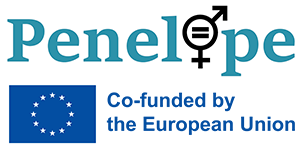

Could you please introduce yourself?
My name is Ana Belén Barqueros Jiménez and, at present, I am the Head of the Women’s Secretariat of the General Union of Workers (UGT) in the Region of Murcia, Spain. I am a career civil servant of the Administration and Services Staff of the University of Murcia and I have a degree in Business Administration and Management.
Could you describe the organization you work in and your industry/business ecosystem in a few words?
I work in a trade union organization that fights for the labor rights of working people, while raising awareness about social realities for the achievement of a fairer and more egalitarian society.
Could you give some facts, figures or a description of the status-quo related to the situation of gender equality in your sector? What are the challenges encountered?
One of the main challenges is to achieve the elimination of gender gaps and inequalities at the labor level between women and men, in access to jobs, career advancement, training, remuneration, female under-representation, reconciliation of work, family and personal life and in situations of sexual and gender-based harassment.
The latest report prepared by the General Union of Workers (UGT) in the Region of Murcia on the occasion of Women’s Day in 2023, details the figures that support the gender gaps in the labor market. Another fundamental challenge is to make visible and raise awareness in society of the existence of the various forms of sexist violence against women and the need to provide regulatory, personal, and economic resources for their elimination.
What mechanisms do you think would be useful to address these challenges or improve the situation you have just described?
Equality plans and pay transparency regulations are tools that can be useful in the labor sphere, together with regulations with a gender perspective such as labor reforms, pension reforms, or the negotiation of minimum wages or job evaluation systems in companies.
Situations of male violence require affective and sexual education in educational centers and detection and prevention mechanisms through laws and agreements at national and regional level, as well as specific action protocols for possible victims.
From your point of view and according to your experience/knowledge, do SMEs currently have difficulties in hiring? Why?
Currently, SMEs may have difficulties if they are not able to assume that the labor market is advancing and is subject to changes in its conception and development. If they try to maintain the traditional barriers, rejecting gender equality or diversity in the different jobs, not admitting that they must offer decent wages, or that the co-responsible conciliation or flexible working hours is not only a requirement of the worker, but also a way to increase their productivity, in this case their hiring options will be difficult.
On the other hand, most SMEs require a cultural change that eliminates the horizontal segregation of jobs and the excessive presence of women in some positions or men in others.
Would you say that gender equality offers a solution to overcome these difficulties? Please justify your answer.
Undoubtedly. A worker who is valued accordingly, in terms of remuneration and personal status, with the enjoyment of a real and effective work-life balance, with the possibility of promotion according to her training, and with positions of equal value and equal pay, will always be more committed and therefore more productive. And this does not happen to many women who continue to suffer direct and indirect discrimination at the workplace or simply with different treatment or lack of opportunity compared to men.
Do you think SMEs in your sector are aware of gender equality regulations?
My experience in the negotiation of gender equality plans or the contact with them through delegates shows me that there is a deep lack of knowledge about equality regulations. From the most fundamental organic law to the latest decree or regulation in effect. There are always exceptions, of course, but it would be interesting if SMEs could opt for more training and information in this regard.
If so, do you know how to comply with these standards?
The lack of knowledge of the different regulations generates, on many occasions, a conflict with your staff when they demand the fulfillment of their rights. Or a conflict with trade union organizations in case of negotiations of agreements, or in the refusal to apply some of these regulations and that can even reach a labor inspection.
What initiatives do you think could be useful to help SMEs in this process (training, webinars, reference person in the company, etc.)?
Training, always training, through courses, conferences, webinars, or through examples or references of companies that are successfully advancing by applying the gender perspective in any of their areas.
In what ways do you think your organization could or does contribute to helping SMEs to effectively integrate a gender perspective?
In the same way that my union organization participates in seminars or conferences organized by business organizations, it could be beneficial for both. That we are not perceived as a threat in companies, but as social agents who only pursue the respect for labor rights in the context that, at the same time, companies obtain their profit. It is a revolution at the base, in the concept of labor relations.
Would you say that working on gender mainstreaming can bring solutions to other challenges you observe (retaining female HR in organizations by addressing issues such as equal pay, work-life balance, combating sexist acts…; populating rural areas, etc.)?
Integrating the gender perspective, with gender impact reports, or analysis of qualitative and quantitative data to obtain a diagnosis, which puts gender inequalities on the table and the implementation of the necessary measures to correct them, is the basis for, together with the approval of regulations also with a gender perspective, eliminating gender gaps in access to the labor market, in access to positions of responsibility, in care tasks, or in remuneration.
Could you describe why gender equality is important to you personally and to the organization in which you work?
One of the main demands of the General Union of Workers (UGT) is the achievement of a society that progresses in equality, eliminating inequalities of treatment and opportunity between women and men that, as the data show, are maintained in the labor and social sphere. Personally, I consider it fair and essential in a society of progress, and undoubtedly, a difficult challenge to meet in the short term because, like any other change, it usually generates fear and rejection at first.
What are the experiences and/or projects that you are proud of that are related to gender equality or gender mainstreaming?
The most rewarding experiences are those related to intervention and action in situations of discrimination or disregard for women’s labor rights. Also, giving training in conferences or seminars.
How would you describe the added value of being a woman in a position of responsibility?
Maintaining a balance in terms of the presence of men and women in positions of responsibility is positive for a company or organization, not only for its image by showing its commitment to equality, but also for having good professionals who do not have the opportunity to access other companies that maintain their glass ceiling, despising their abilities.
What are your challenges and opportunities being a woman in a position of responsibility?
To banish stereotypes and the social demand that, because you are a woman, you must prove your worth twice as much when occupying a position of responsibility, as well as to make it clear that the implementation of any professional challenge does not depend in any case on the fact of being a man or a woman.
What would be your main message on advancing gender equality approaches in SMEs?
98% of our business fabric is made up of SMEs. It is complicated to develop equality regulations for small companies, those with less than 50 employees, so their voluntary participation in policies of equal treatment and opportunity between women and men can be extremely useful to advance in this direction, not by imposition, but by their own conviction, for having understood that this approach is positive for the company as a whole, for its progress and evolution.


